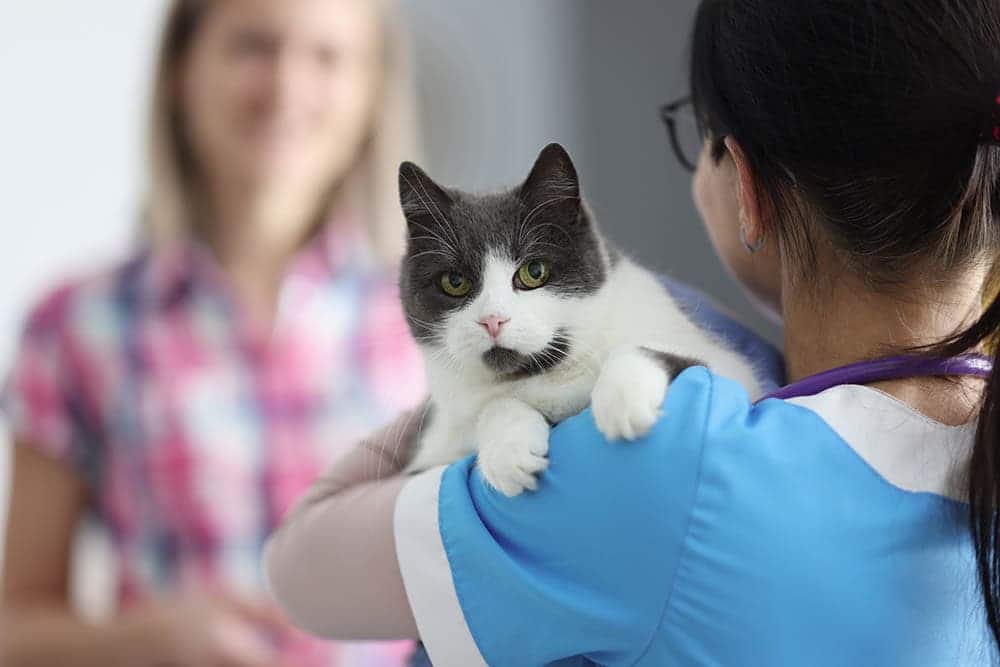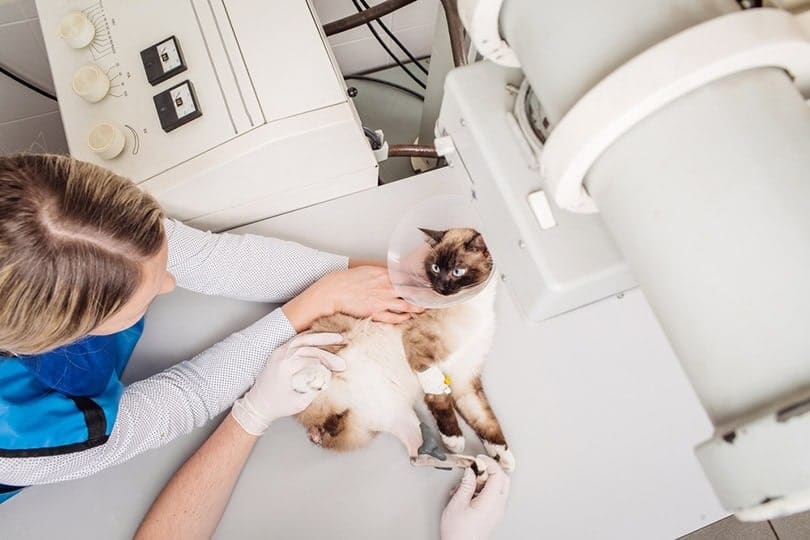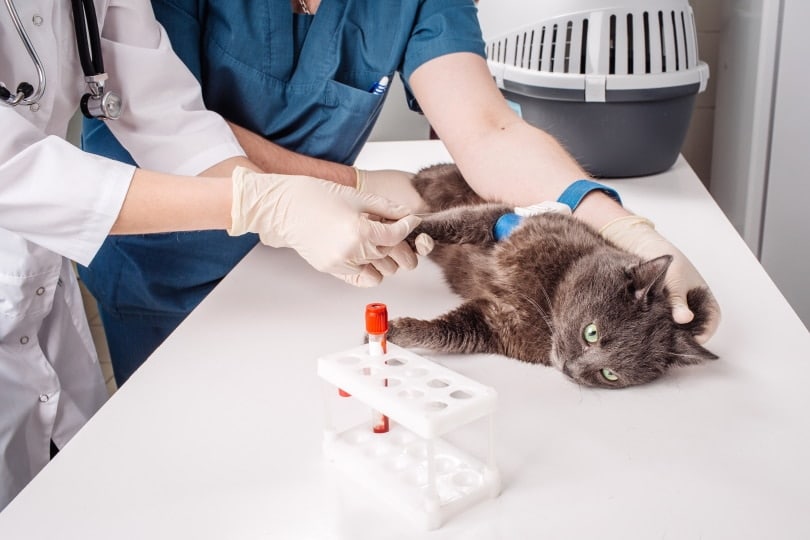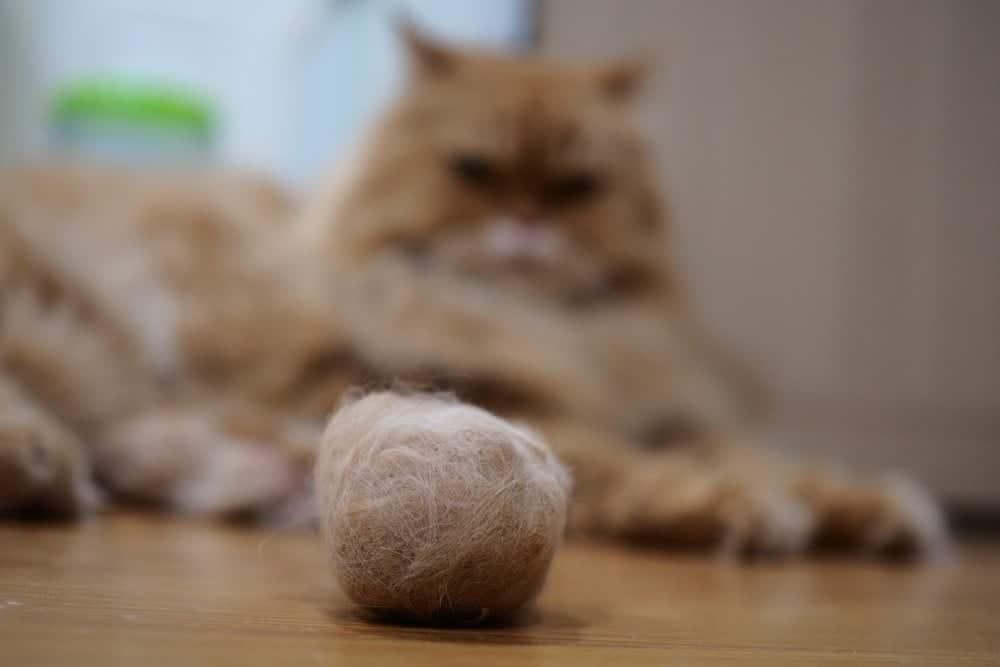[ad_1]
In case your cat’s abdomen is making odd noises, you could be questioning what’s happening and what causes it. Abdomen gurgles are sometimes completely regular — they’re typically simply the sounds brought on by on a regular basis feline digestive processes, however these noises will also be a sign that one thing extra severe is occurring, significantly when accompanied by different indicators of sickness reminiscent of lack of urge for food, lethargy or vomiting.
Cats that seem like feeling beneath the climate and who’ve gurgling stomachs ought to at all times be seen by a veterinarian sooner relatively than later, and attain out to your veterinarian in case your cat doesn’t eat for greater than a day or so. Maintain studying to study extra about eight the explanation why your cat’s abdomen could also be gurgling.


The 8 Potential Causes Why Your Cat’s Abdomen is Gurgling
1. Regular Digestion
Veterinarians name these tummy rumbles borborygmi. They’re typically regular and simply a part of how cats digest meals. Abdomen gurgling is the sound related to fluids and gasses passing via the digestive system. These sounds often seem inside a number of hours of the pets’ final meals.
Probiotics and prebiotics could assist cats with digestive points, and business diets can be found for cats with delicate stomachs. Communicate along with your veterinarian earlier than altering what your cat eats or including any dietary supplements to their food plan.


2. Meals Allergy symptoms
Meals allergic reactions can happen in cats, and after they happen, indicators typically embrace itchy pores and skin, extreme ear wax, and abdomen issues. Proteins reminiscent of beef, rooster, and fish are widespread triggers.
There could also be a genetic part to allergic reactions, as many cats that suffer from meals sensitivities additionally react to environmental triggers. Finally, veterinarians aren’t totally certain what determines which cats can have allergic reactions. Nevertheless, elimination diets are used to establish what causes the allergy.
3. Gastrointestinal Most cancers
Gastrointestinal cancers can happen in cats in all elements of the gastrointestinal tract. Most of those have complicated causes and threat elements that aren’t totally understood. Most cancers of the gastrointestinal tract can result in digestive upset, vomiting, diarrhea, and elevated borborygmus as cats digest meals.


4. Pancreatitis
The pancreas makes enzymes that assist cats digest meals and handle blood sugar ranges. Pancreatitis is an inflammatory situation that may happen all of a sudden or develop over time. Indicators of acute pancreatitis embrace lack of urge for food, abdomen ache, vomiting, and diarrhea. Indicators typically come and go when cats are coping with continual pancreatic issues.
5. Hyperthyroidism
Hyperthyroidism happens when cats’ our bodies produce an excessive amount of thyroid hormone and is mostly brought on by benign tumors. The situation might be linked to dietary points or chemical publicity, and it’s usually seen in older cats.
Indicators can embrace weight reduction, vomiting, diarrhea, and elevated urge for food. Analysis often includes a bodily examination and blood exams. Therapy choices are assorted however radioactive iodine remedy tends to be fairly profitable.


6. International Physique Ingestion
Non-food objects that cats get into and eat can typically get caught of their digestive tracts, which might result in gastrointestinal blockages. The most typical indicators embrace not consuming, vomiting, and withdrawal. These blockages can result in life-threatening obstructions in the event that they’re not eliminated by a veterinarian.
7. Hairballs
Hairballs are shaped when the fur ingested throughout grooming will get caught of their digestive tracts as a substitute of passing alongside as poop. Hairballs typically appear to be tubes of moist fur, and mucus typically surrounds them. It’s typically extra of an issue with longhaired cats, although pets that overgroom attributable to stress or allergic reactions can find yourself with their fair proportion of hairballs. Frequent hairballs must be mentioned along with your cat’s veterinarian.


8. Upset Tummy
Generally, cats handle to get into issues that don’t agree with them, which might result in tummy issues. Cats that eat a brand new model of meals can typically have problem with a selected ingredient. Consuming meals that’s began to spoil may also trigger cats to have tummy issues.
Leftover meals must be disposed of to stop these types of points. Dry meals can stay within the bowl longer, however moist meals must be eliminated after an hour at room temperature. Meals bowls must be washed after each use, and water bowls must be cleaned day by day. Parasites may also trigger cats to have abdomen points.


Conclusion
Cats’ stomachs can gurgle for a number of causes, from regular digestion to severe sickness, nevertheless it’s typically a part of cats’ regular digestion. Cats displaying indicators of sickness, reminiscent of lethargy and lack of urge for food, ought to at all times be seen by a veterinarian, as they typically cover indications of sickness, making it crucial to comply with up on these basic indicators that they will not be feeling nicely. Probiotics and meals formulated for cats with delicate stomachs could assist decrease gurgling in some cats.
Featured Picture Credit score: Simone Hogan, Shutterstock
[ad_2]